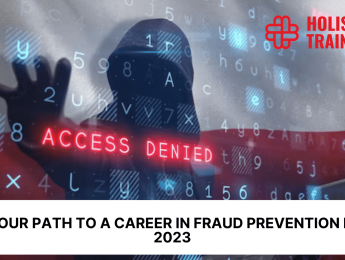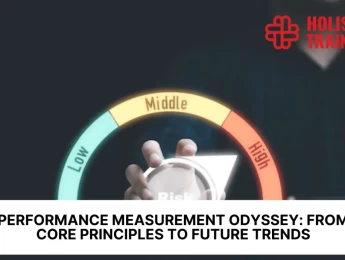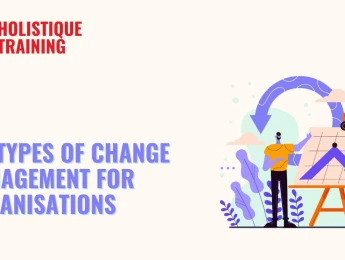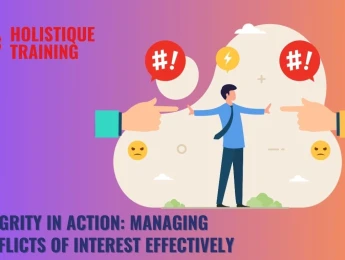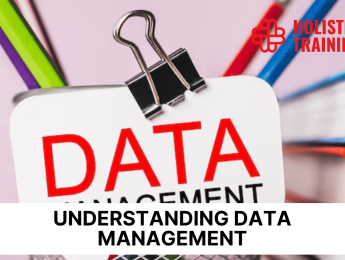- Table of Contents
- Introduction
- What Is Fraud Prevention and Investigation?
- Why Is Fraud Prevention Important?
- Financial Stability and Protection
- Preservation of Reputations
- Legal and Regulatory Consequences
- Consumer Confidence
- Economic Impact
- Mitigating Social Costs
- Innovation and Technological Progress
- Global Implications
- Main Responsibilities of a Fraud Prevention Officer
- 1- Investigating Suspicious Activity
- 2- Implementing Preventive Measures
- 3- Conducting Risk Assessments
- 4- Collaborating with Law Enforcement
- 5- Educating Stakeholders
- 6- Data Analysis and Reporting
- Top Skills & Characteristics of a Good Fraud Prevention Officer
- Analytical Skills
- Ethical Integrity
- Communication Skills
- Cybersecurity Knowledge
- Adaptability
- Teamwork
- Problem-Solving Abilities
- Legal Knowledge
- Continuous Learning
- Attention to Process Improvement
- Cultural Awareness
- Persistence and Resilience
- Steps to Kickstart Your Career As a Fraud Prevention Officer
- 1. Educational Foundation
- 2. Gain Experience
- 3. Build Technical Skills
- 4. Certification
- 5. Networking and Professional Development
- 6. Specialisation and Advanced Education
- 7. Career Advancement
- 8. Ethical Commitment
- Why Is the CFE Certification Important?
- Credibility and Expertise
- Industry Recognition
- Enhanced Career Prospects
- Networking Opportunities
- Continuing Education and Resources
- Ethical Foundation
- Legal and Regulatory Compliance
- Salary of a Fraud Investigator
- The Challenges of Being a Fraud Prevention Officer
- Rapidly Evolving Fraud Schemes
- Balancing Prevention and Customer Experience
- Navigating Data Privacy Regulations
- Ethical Dilemmas
- Resource Constraints
- Complexity of International Cases
- Staying Updated on Technology
- Dealing with Emotional Toll
- Legal and Regulatory Complexities
- Resistance to Change
- The Future of the Fraud Prevention Career
- Conclusion
Introduction
Fraudulent activities have become increasingly sophisticated in our interconnected world. To counteract this rising threat, the demand for skilled professionals in fraud prevention and investigation has surged. These experts are the unsung heroes behind the scenes, tirelessly working to protect individuals, organisations, and financial systems from malicious schemes. In this comprehensive guide, we will delve deep into the world of fraud prevention, explore its importance, delineate the key responsibilities of a Fraud Prevention Officer, discuss the essential skills and characteristics required, outline the steps to embark on this rewarding career, shed light on the significance of acquiring the ACFE (Association of Certified Fraud Examiners) certification, and finally, peek into the future of the fraud prevention career.
What Is Fraud Prevention and Investigation?
Fraud prevention and investigation is a multidisciplinary field dedicated to identifying, mitigating, and addressing fraudulent activities that can cause substantial financial losses, reputational damage, and legal consequences. This domain encompasses various types of fraud, including financial fraud, identity theft, cybercrime, and corporate fraud. Fraud Prevention Officers serve as the front line of defence against these threats.
Why Is Fraud Prevention Important?
The importance of fraud prevention cannot be overstated. Fraudulent activities cost individuals, businesses, and governments billions of dollars each year. Beyond the financial impact, fraud erodes trust and tarnishes reputations. Here are some compelling reasons why fraud prevention is crucial:
Financial Stability and Protection
At its core, fraud prevention is a bulwark against financial calamity. For individuals, it can mean the difference between preserving hard-earned savings and facing ruinous losses. In the business realm, it's the line of defence against corporate bankruptcy, ensuring the continuity of operations and the livelihoods of employees.
Preservation of Reputations
In today's hyperconnected world, reputations can be shattered in mere moments. A single instance of fraud, whether in a corporation or a financial institution, can tarnish the reputation painstakingly built over decades. Fraud prevention efforts are, therefore, essential in maintaining the trust of customers, clients, and stakeholders. A company known for robust anti-fraud measures is often viewed as more reliable and trustworthy.
Legal and Regulatory Consequences
Fraudulent activities are not only financially damaging but can also lead to severe legal repercussions. Individuals involved in fraud may face criminal charges, fines, and imprisonment, while businesses can encounter costly legal battles and regulatory penalties. Preventing fraud not only adverts these consequences but also ensures compliance with legal and ethical standards.
Consumer Confidence
The stability of financial systems relies heavily on the confidence of consumers and investors. Fraud can erode this confidence, causing people to withdraw investments, move their funds, or avoid certain financial institutions altogether. By proactively preventing fraud, financial entities can maintain consumer trust, which is the bedrock of their operations.
Economic Impact
Fraud's consequences ripple through economies. It can lead to job losses, decreased consumer spending, and diminished economic growth. By preventing fraud, not only are individual businesses and individuals protected, but the overall economic well-being of a region or nation is preserved.
Mitigating Social Costs
Fraud often carries with it significant social costs. When individuals fall victim to scams or financial fraud, it can lead to emotional distress, family upheaval, and even a reliance on social safety nets. Effective fraud prevention helps mitigate these societal burdens.
Innovation and Technological Progress
The fight against fraud has driven innovation in technology and security. As fraudsters continuously devise new tactics, the need for cutting-edge cybersecurity measures and financial technologies has grown. This has led to the development of advanced security systems, biometrics, and encryption techniques that have applications beyond fraud prevention.
Global Implications
In our interconnected world, fraud knows no borders. It can impact individuals and organisations on a global scale. By preventing fraud, professionals in this field contribute to international efforts to combat transnational criminal organisations and protect global financial systems.
In essence, fraud prevention is a linchpin in maintaining the fabric of trust upon which our financial systems and societal structures are built. Its importance extends far beyond financial considerations, touching every aspect of our lives, from personal security and business continuity to economic prosperity and the preservation of ethical and legal standards. As we navigate an increasingly complex and interconnected world, the role of fraud prevention officers becomes even more critical in safeguarding the foundations of our modern societies.
Main Responsibilities of a Fraud Prevention Officer
A Fraud Prevention Officer plays a pivotal role in safeguarding organisations and individuals from financial harm. Let's delve into the key responsibilities that define this challenging yet rewarding role:
1- Investigating Suspicious Activity
Investigating suspicious activities is at the core of a Fraud Prevention Officer's responsibilities. This entails meticulously scrutinising financial transactions and records for any signs of irregularities or red flags. Officers leverage their analytical skills to identify patterns, anomalies, and discrepancies that might indicate fraudulent behaviour.
This investigative aspect serves as the frontline defence against fraud, enabling the early detection of potential threats and the swift initiation of preventive measures.
2- Implementing Preventive Measures
Beyond merely detecting fraud, Fraud Prevention Officers are instrumental in developing and implementing proactive measures to deter potential fraudsters. They work in close collaboration with various departments to establish and enforce fraud prevention policies and procedures. These can include access controls, authentication mechanisms, and security protocols.
Implementing preventive measures reduces the risk of fraud occurring in the first place, thereby saving an organisation from the potentially devastating consequences of financial loss and reputational damage.
3- Conducting Risk Assessments
Fraud Prevention Officers regularly conduct comprehensive risk assessments to evaluate an organisation's vulnerabilities. This involves a thorough examination of internal processes, financial systems, and data security practices. Based on their findings, they recommend security upgrades, process enhancements, or changes in policies to mitigate potential threats effectively.
Risk assessments provide a roadmap for organisations to fortify their defences against fraud. Identifying weaknesses allows them to proactively address vulnerabilities before they are exploited by fraudsters.
4- Collaborating with Law Enforcement
When fraudulent activities are suspected or confirmed, Fraud Prevention Officers collaborate closely with law enforcement agencies. They serve as vital links between the organisation and the legal system, providing evidence, documentation, and expert testimony in criminal investigations and court proceedings.
Collaboration with law enforcement is pivotal in bringing fraudsters to justice and recovering stolen assets. Fraud Prevention Officers play an integral role in ensuring that justice is served and that the culprits are held accountable.
5- Educating Stakeholders
Educating stakeholders, including employees, management, and partners, is a proactive measure to enhance fraud awareness and prevention. Fraud Prevention Officers design and deliver training programmes that raise awareness about potential risks and educate stakeholders on how to recognise, report, and mitigate fraudulent activities.
Well-informed stakeholders are the first line of defence against fraud. By imparting knowledge and fostering a culture of vigilance, Fraud Prevention Officers empower individuals to play an active role in fraud prevention.
6- Data Analysis and Reporting
Effective fraud prevention relies heavily on data analysis. Fraud Prevention Officers are proficient in utilising data analysis tools and techniques to examine large datasets for unusual patterns, trends, and potential fraud cases. They compile comprehensive reports that detail their findings and provide insights into the state of fraud prevention efforts.
Data analysis and reporting not only identify current instances of fraud but also help organisations refine their fraud prevention strategies. These reports inform decision-makers about the effectiveness of existing measures and guide the allocation of resources for future prevention efforts.
In summary, the role of a Fraud Prevention Officer is both challenging and critical. These professionals serve as the vanguards against fraudulent activities, employing a diverse skill set to investigate, prevent, and mitigate threats. Their contributions extend beyond financial considerations, encompassing the preservation of trust, reputation, and the ethical fabric of our financial systems. By executing their main responsibilities diligently, Fraud Prevention Officers play a pivotal role in safeguarding the financial well-being of individuals and the stability of organisations and economies.
Table 1: Key Responsibilities of a Fraud Prevention Officer
Responsibility | Description |
Investigating Suspicious Activity | Analysing financial transactions and records for anomalies. |
Implementing Preventive Measures | Developing and enforcing fraud prevention policies. |
Conducting Risk Assessments | Evaluating vulnerabilities and recommending security upgrades. |
Collaborating with Law Enforcement | Assisting in legal proceedings and sharing evidence. |
Educating Stakeholders | Training staff on fraud awareness and prevention measures. |
Data Analysis and Reporting | Examining data to identify trends and potential fraud cases. |
Top Skills & Characteristics of a Good Fraud Prevention Officer
Becoming a proficient Fraud Prevention Officer requires a unique set of skills and personal qualities. This role demands a combination of technical expertise and interpersonal finesse. Here are some of the top skills and characteristics that define a successful Fraud Prevention Officer:
Analytical Skills
The ability to dissect complex data and identify irregularities is paramount. Attention to detail and a keen analytical mind are essential. Fraud Prevention Officers must be adept at sifting through vast amounts of information, recognising patterns, and connecting the dots to uncover potential fraudulent activities.
Ethical Integrity
Trust is fundamental in this field. Officers must uphold the highest ethical standards to maintain credibility. Upholding moral principles is not just a requirement but a guiding principle that ensures the integrity of investigations and the trust of stakeholders.
Communication Skills
Effective communication is crucial when educating stakeholders, collaborating with law enforcement, and reporting findings. Fraud Prevention Officers must convey complex ideas clearly, whether in written reports, verbal briefings, or courtroom testimonies.
Cybersecurity Knowledge
In an increasingly digital world, understanding cybersecurity principles and threats is invaluable. Officers need to keep pace with evolving cyber threats, including malware, phishing, and data breaches, to protect against online fraud effectively.
Adaptability
Fraudsters continually evolve their tactics, making adaptability essential to stay ahead of new and emerging fraud schemes. Being open to learning, embracing new technologies, and adjusting strategies accordingly is a hallmark of a successful Fraud Prevention Officer.
Teamwork
Collaboration with colleagues and external partners is common in fraud prevention. Being a team player fosters successful fraud prevention efforts, as it enables the pooling of diverse skills and perspectives to address complex issues.
Problem-Solving Abilities
The ability to think critically and devise innovative solutions is crucial in fraud prevention. Fraud Prevention Officers often encounter unique and intricate challenges that require creative problem-solving to resolve effectively.
Legal Knowledge
Understanding the legal aspects of fraud and investigative procedures is beneficial when cooperating with law enforcement. Knowledge of relevant laws, regulations, and courtroom procedures enhances an officer's effectiveness in fraud-related legal proceedings.
Continuous Learning
Staying updated on the latest fraud trends, techniques, and technologies is vital in this ever-evolving field. Successful Fraud Prevention Officers are committed to ongoing education and professional development, ensuring they remain at the forefront of fraud prevention practices.
Attention to Process Improvement
The ability to identify areas for process improvement and implement changes is essential. This includes refining fraud prevention policies, enhancing data analysis techniques, and streamlining investigative procedures to adapt to evolving fraud threats.
Cultural Awareness
In cases involving international fraud or diverse populations, cultural awareness is critical. Understanding cultural nuances can aid in building trust and effective communication with stakeholders from different backgrounds.
Persistence and Resilience
Fraud prevention can be challenging, often involving complex cases and adversaries determined to evade detection. A good Fraud Prevention Officer exhibits persistence and resilience in the face of obstacles, always pursuing the truth and justice.
In essence, a successful Fraud Prevention Officer possesses a blend of technical acumen, ethical rigour, and interpersonal skills. These professionals are not only guardians against financial deception but also champions of trust and integrity in the realm of finance and commerce. By embodying these skills and characteristics, they contribute significantly to maintaining the stability and credibility of financial systems.
Steps to Kickstart Your Career As a Fraud Prevention Officer
Embarking on a career as a Fraud Prevention Officer requires a deliberate and structured approach. Here are the key steps to help you get started on this rewarding journey:
1. Educational Foundation
To lay the groundwork for a successful career in fraud prevention, start by obtaining a bachelor's degree in a related field. The choice of degree can vary, but disciplines such as accounting, finance, criminal justice, cybersecurity, or forensic accounting are particularly beneficial. A strong educational foundation equips you with the fundamental knowledge and skills needed to understand financial systems, analyse data, and grasp the legal aspects of fraud.
2. Gain Experience
Entry-level positions are excellent starting points to gain practical experience. Seek roles in auditing, compliance, financial analysis, or investigative positions. These positions expose you to real-world financial transactions, risk assessment, and fraud detection. Practical experience is invaluable in building your expertise and enhancing your understanding of fraud prevention practices.
3. Build Technical Skills
Fraud Prevention Officers rely heavily on technical skills to analyse data, identify irregularities, and implement preventive measures. Develop proficiency in data analysis tools, financial software, and cybersecurity concepts. Familiarise yourself with software like Excel, data visualisation tools, and fraud detection software. Staying updated with the latest cybersecurity technologies and practices is essential in today's digital landscape.
4. Certification
Pursuing relevant certifications is a crucial step in establishing your credibility and expertise in the field of fraud prevention. The Certified Fraud Examiner (CFE) credential, offered by the Association of Certified Fraud Examiners (ACFE), is highly regarded in the industry. To obtain the CFE certification:
- Eligibility:Ensure you meet the ACFE's eligibility requirements, which typically include relevant work experience and education.
- Application: Complete the CFE application, providing details of your professional background and educational qualifications.
- Study:Prepare rigorously for the CFE exam by studying the ACFE's official materials, including the Fraud Examiners Manual. The exam covers four sections: Financial Transactions and Fraud Schemes, Law, Investigation, and Fraud Prevention and Deterrence.
- Pass the Exam: Successfully pass all four sections of the CFE exam, demonstrating your comprehensive understanding of fraud prevention concepts and techniques.
- Membership:Upon passing the exam, become a member of the ACFE to access a wealth of resources, including ongoing education, networking opportunities, and career support.
5. Networking and Professional Development
Networking is essential in the field of fraud prevention. Attend industry conferences, join professional organisations like the ACFE, and participate in local or international fraud prevention groups. These connections can provide valuable insights, mentorship opportunities, and potential job openings. Additionally, engage in continuous professional development to stay updated on the latest fraud prevention trends and practices.
6. Specialisation and Advanced Education
As you progress in your career, consider specialising in a particular area of fraud prevention, such as cyber fraud, financial fraud, or corporate fraud. Pursuing advanced education or specialised certifications in these areas can open up new career opportunities and enhance your expertise.
7. Career Advancement
Fraud prevention offers diverse career paths, including roles such as Fraud Investigator, Fraud Analyst, Compliance Officer, and Chief Risk Officer. Continuously seek opportunities for career advancement, whether through increased responsibilities, leadership roles, or transitioning to higher-level positions within your organisation or in other companies.
8. Ethical Commitment
Lastly, never underestimate the importance of ethical integrity in the field of fraud prevention. Uphold the highest ethical standards in all your professional endeavours. Maintaining the trust and confidence of stakeholders is paramount, and ethical conduct is the cornerstone of a successful career in fraud prevention.
In summary, becoming a Fraud Prevention Officer is a methodical journey that combines education, practical experience, certification, and ongoing professional development. It's a dynamic field that offers a rewarding career path for individuals dedicated to safeguarding financial systems, maintaining ethical standards, and countering the ever-evolving threats of fraud.
Table 2: Steps to Become a Fraud Prevention Officer
Step | Description |
1. Educational Foundation | Obtain a bachelor's degree in a related field. |
2. Gain Experience | Start with entry-level positions in finance or auditing. |
3. Build Technical Skills | Learn data analysis, financial software, and cybersecurity. |
4. Certification | Pursue the CFE certification for credibility and expertise. |
Why Is the CFE Certification Important?
The significance of the Certified Fraud Examiner (CFE) certification extends far beyond adding a credential to your name. This certification, offered by the Association of Certified Fraud Examiners (ACFE), is a testament to your expertise and commitment in the field of fraud prevention. Let's explore why the CFE certification holds such importance:
Credibility and Expertise
Obtaining the CFE certification instantly elevates your credibility and expertise in the realm of fraud prevention. It signals to employers, colleagues, and clients that you have undergone rigorous training, passed a comprehensive examination, and committed to upholding the highest ethical standards. This credibility is invaluable when working in a field where trust and integrity are paramount.
Industry Recognition
The CFE credential is recognised and respected globally. It is often considered the gold standard for professionals engaged in fraud prevention, detection, and investigation. This recognition extends across various industries, from finance and banking to law enforcement and corporate compliance. Employers and organisations actively seek out CFE-certified professionals to lead their fraud prevention efforts.
Enhanced Career Prospects
One of the most tangible benefits of the CFE certification is its positive impact on your career prospects. CFE-certified individuals are often preferred candidates for leadership roles in fraud prevention and investigation. They are sought after for positions such as Fraud Manager, Fraud Investigator, Compliance Officer, and Internal Auditor. The certification can open doors to more challenging and rewarding career opportunities.
Networking Opportunities
Membership in the ACFE, which is typically a part of the certification process, offers access to a vast network of professionals in the field. This network extends across the globe and includes experts, practitioners, and thought leaders in fraud prevention. Engaging with this community can lead to mentorship, collaboration, and potential job referrals.
Continuing Education and Resources
The ACFE provides CFE-certified individuals with access to a wealth of resources to support their professional development. These resources include educational materials, research publications, webinars, conferences, and specialised training. Staying connected to these resources ensures that CFE-certified professionals remain at the forefront of fraud prevention practices and emerging trends.
Ethical Foundation
The CFE certification places a strong emphasis on ethical conduct and adherence to a strict code of ethics. This commitment to ethical principles underscores the importance of trust and integrity in the field of fraud prevention. CFE-certified professionals are expected to maintain the highest standards of honesty and professionalism, which is essential when dealing with sensitive and confidential information.
Legal and Regulatory Compliance
In some cases, regulatory bodies and government agencies may require or prefer that individuals involved in fraud prevention and investigation hold the CFE certification. This certification can demonstrate your competence and qualification to fulfil regulatory requirements, which is particularly important in sectors subject to strict oversight and compliance standards.
Salary of a Fraud Investigator
According to Criminal Justice Degree Schools, individuals in roles such as fraud examiners, investigators, and analysts typically earn a median annual income of $69,520.1 in the US. A job growth rate of 10% to 14% is also expected for these professionals through 2026.
The Challenges of Being a Fraud Prevention Officer
While a career in fraud prevention can be rewarding and fulfilling, it also comes with its fair share of challenges. Fraud Prevention Officers face a dynamic landscape characterised by evolving fraud tactics, complex investigations, and the need to balance prevention with ethical considerations. Here are some of the key challenges they encounter:
Rapidly Evolving Fraud Schemes
Fraudsters continually adapt and develop new tactics to bypass security measures. Keeping pace with these evolving fraud schemes requires constant vigilance and a commitment to ongoing education and training. Fraud Prevention Officers must be prepared to adapt their strategies and stay ahead of the curve.
Balancing Prevention and Customer Experience
Striking the right balance between robust fraud prevention measures and a seamless customer experience can be challenging. Overly stringent security measures can inconvenience customers and deter business, while lax security can expose organisations to fraud risks. Finding the right equilibrium is an ongoing challenge.
Navigating Data Privacy Regulations
Data privacy regulations, such as the European Union's General Data Protection Regulation (GDPR) and the California Consumer Privacy Act (CCPA), impose strict requirements on the collection and use of personal data. Fraud Prevention Officers must navigate these regulations carefully to ensure compliance while effectively preventing fraud.
Ethical Dilemmas
Fraud investigations often involve sensitive information and ethical considerations. Officers may face dilemmas when balancing the need to investigate with respecting individuals' privacy rights and maintaining ethical standards. Navigating these ethical grey areas can be emotionally challenging.
Resource Constraints
Many organisations face budget constraints when it comes to fraud prevention. Adequate staffing, advanced technology, and training are essential for effective fraud prevention, but securing these resources can be a challenge. Fraud Prevention Officers must often work within limited budgets and resources.
Complexity of International Cases
Fraud cases with international dimensions can be exceptionally complex. Different legal systems, languages, and cultural nuances must be considered, and collaboration with international law enforcement agencies can be challenging. Coordinating efforts across borders requires patience and diplomatic skills.
Staying Updated on Technology
As technology evolves, fraudsters exploit new tools and vulnerabilities. Keeping up with the latest technological advancements, including artificial intelligence, blockchain, and cryptocurrencies, is crucial for effective fraud prevention. This requires continuous learning and adaptation.
Dealing with Emotional Toll
Investigating fraud can be emotionally taxing. Fraud Prevention Officers often encounter victims who have suffered significant financial and emotional distress. Dealing with the human aspect of fraud, including empathising with victims and maintaining professionalism, can be emotionally challenging.
Legal and Regulatory Complexities
Navigating the legal and regulatory landscape related to fraud prevention can be intricate. Understanding the nuances of various laws, regulations, and reporting requirements is essential to conduct effective investigations while remaining compliant.
Resistance to Change
Implementing new fraud prevention measures within an organisation can face resistance from employees who may view them as disruptive or invasive. Overcoming this resistance and fostering a culture of fraud prevention can be a long-term challenge.
Despite these challenges, the role of a Fraud Prevention Officer remains vital in protecting individuals, organisations, and financial systems from fraudulent activities. Successful professionals in this field are those who embrace these challenges as opportunities for growth, remain committed to their ethical principles, and continuously seek ways to enhance their skills and knowledge.
The Future of the Fraud Prevention Career
The future of the fraud prevention career is bright, albeit challenging. As technology continues to advance, so do the methods used by fraudsters. This creates a perpetual demand for skilled professionals to combat evolving threats. Here's a glimpse of what the future holds for fraud prevention:
- Cybersecurity Integration: With the increasing reliance on digital transactions, fraud prevention will become more intertwined with cybersecurity practices. Professionals will need to be well-versed in both domains.
- AI and Automation:Artificial intelligence and automation will play a significant role in fraud detection and prevention. Professionals will need to adapt to these tools and harness their capabilities.
- Regulatory Changes:Evolving regulations and compliance requirements will impact fraud prevention strategies. Staying informed and adaptable will be crucial.
- Global Perspective:As fraud knows no borders, professionals may find opportunities to work on international cases and collaborate across borders.
Conclusion
Becoming a Fraud Prevention Officer is a noble pursuit that offers the chance to protect individuals and organisations from financial ruin and reputational damage. It requires a unique blend of skills, including analytical prowess, ethical integrity, and adaptability. By following a structured path that includes education, experience, and certification, you can embark on a fulfilling career in fraud prevention. Acquiring the ACFE's Certified Fraud Examiner (CFE) certification can further elevate your credibility and expertise in this field. As the world continues to grapple with ever-evolving fraud threats, the role of Fraud Prevention Officers remains indispensable, promising a future filled with opportunities to safeguard trust and financial stability.
To accelerate your knowledge and expertise in fraud prevention, consider enrolling in our comprehensive Fraud Prevention Training course, where you'll gain insights from industry experts, master the latest techniques, and earn a valuable certification that will set you apart in this crucial field. Join us in the fight against fraud and become a certified guardian of financial integrity!


